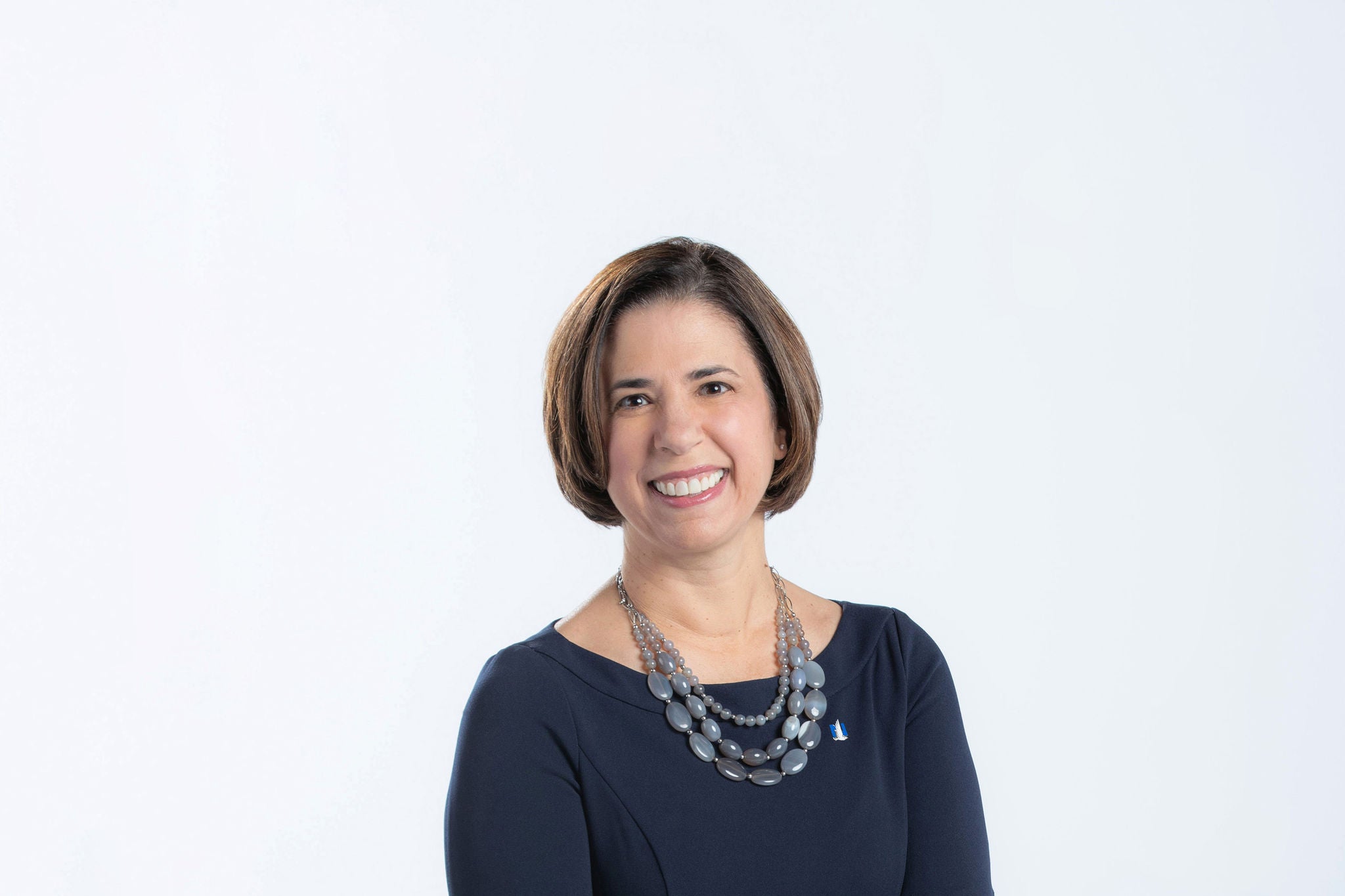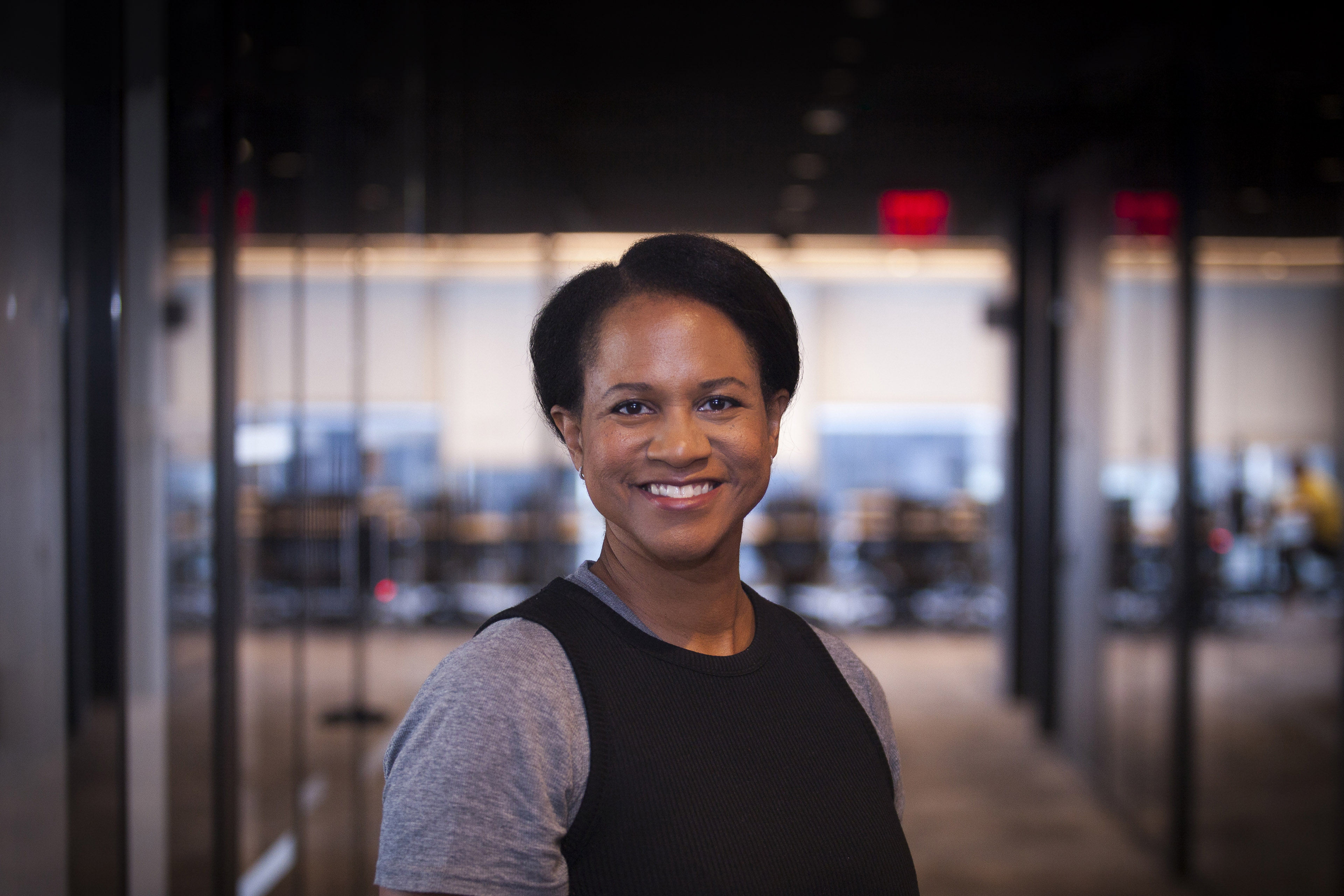EY refers to the global organization, and may refer to one or more, of the member firms of Ernst & Young Global Limited, each of which is a separate legal entity. Ernst & Young Global Limited, a UK company limited by guarantee, does not provide services to clients.

By embracing change and highlighting possibilities, this executive helps others blaze their own trail.
Technology and mentorship have been key themes throughout Melanie Kolp’s career. Bitten by the technology bug at an early age, Melanie today serves as Senior Vice President and Chief Technology Officer of Corporate Technology at Nationwide, where she oversees a team that drives the insurer’s technology strategy and product delivery. She is passionate about helping other women navigate careers in technology – both inside and outside her company. Some of that passion dates to the earliest days of her professional life at Ernst & Young LLP (EY US), where she started as a software developer in the Columbus, Ohio office and spent 7½ years in a variety of roles. Melanie spoke with us recently about the value of mentorship, the need to embrace change and the evolving landscape for women in technology.
Tell us about your career journey and how you’ve reached this point.
I started my career with EY, and it taught me how to learn quickly – because you move from one place and project to another and need to figure out where you should spend your time and energy. I also learned to build relationships with people who were gracious enough to teach me how to move forward.
After EY, I took a short stint with American Electric Power, where I continued to grow but also learned that I really wanted to take greater ownership of applications and create the strategy for the future. That led me to Nationwide. Here, the benefit of being in a large company with a substantial technology organization was that I could move around a lot and take full advantage of the ability to go from role to role and business unit to business unit. As my teams got bigger and my scope broader, I could empathize with our people playing a variety of roles, because I had played those roles at some point.
A real turning point that led me to my current position happened after I had my kids and had taken a necessary period of time to acclimate and didn’t try to move up in the organization. I was an Associate Vice President at the time, and I thought that between work and home, that’s all I could do. But when a role opened up, a friend told me, “I don’t understand – you’ve done all these other roles; what makes you think you can’t do the next one?” That was a big catalyst. She was right – I would just have to figure it out like I had at every other point in my career.
Where did your passion for technology develop?
When I was 11, I wanted to try out a computer. My parents are wonderful in that they always wanted to support whatever kind of crazy thing we all wanted to try; my brother played many different sports, and I tried my hand at a lot of different activities. They ended up buying me a Commodore 64 computer that hooked up to the television set on the dresser in their bedroom. I’d sit on the floor and look up at it and work on things like Hello World programs. They bought me a book that told me things I could type in, and I got to see the computer produce fun output. From that point forward, I knew that was what I wanted to do. I attended college and declared management information systems as my major.
What has your journey with enterprise technology been like at Nationwide?
When I started here 17 years ago, in some ways, technology was not the priority it is today. We needed it, but it wasn’t recognized as being the real driver for what we do as a company. If we fast-forward to today, that has really changed. Now, it is our focus and the key to our strategy. Our CEO, Kirt Walker, who assumed that role 2½ years ago, consistently talks about us being a people-connected, technology-enabled company. It’s exciting that we have seen that complete evolution.
As you look to a post-pandemic future, what excites you about where the company is going?
There’s no denying how many organizations and people had to go fully digital almost overnight, so in a weird way COVID was a catalyst to move technology forward. Nationwide was already well into its digital transformation, but the last year accelerated that evolution. I’m excited to continue this momentum, and proud of the flexibility we’re now providing our associates that we hadn’t considered before. We have hybrid working models and are hiring talent from locations across the US, broadening our talent base and attracting talent from beyond our home market in the Midwest.
You’ve had several roles with the company. How did you approach those transitions?
A few years ago, when I was interested in an opportunity to work with our retirement plans (as Vice President, Retirement Plans Technology Leader), there was an aspect to that job that was completely different than any other technology role because it was a formal part of the sales team. For me, that meant a new challenge that was a bit outside my comfort zone.
I sought out a mentor who had led the area in the past. I told her that I didn’t know anything about retirement plans, and that I’d not sold anything before. She slammed her hand down on the table and said, “Stop telling me what you can’t do in this role and tell me what you will do.” That was a jolt, but it was what I needed to pursue and land the role. You have to ask yourself, “What if you can?” instead of, “What if you can’t?”
What do you think the next evolution of the customer experience is for Nationwide as it relates to technology?
We’re striving for the most seamless experience possible, to meet people where they are and know how they want to interact.
When you’re adding a car or driver to an auto policy, that’s easy to do online. But if you’re talking about a death benefit, or if someone just lost their house in a fire, you want to talk to a person. We always want to provide extraordinary care and make sure we’re doing that the right way.
What has your EY connection meant to you?
I still have my core group of colleagues and great friends that I met during my time at EY. When you work together and travel together, people just become your extended family. It’s about mentorship, too. I think about having a personal board of directors; almost everybody on mine is from EY, because they’ve seen me through every point in my career and life.
Who are some of the people from those days that stand out to you?
Rich Sheely and Denver Schaffer were my partners in Columbus. There is a group of women who are particularly important to me, including Maria Urani, Linda Roubinek, Sarah Miller, Carrie Klingel, Marcie Merriman and Eileen Ouellette. Marcie left EY and is now back as a partner. I had a group I was close to between projects in Cincinnati and Michigan that included Matt Miller, Lisa Tomle, Cheryl Geppert and Scott Staples. And nowadays I have a couple of neighbors from the EY family, retired partner Tammy Izzo and Dan Valerio.
What has your experience been in terms of mentorship and career development?
I’ve always had great opportunities to be around strong, helpful, honest mentors. Now it’s my turn to give back to as many people as I can. I started our Women in Technology organization at Nationwide, which has now morphed into a broader diversity, equity and inclusion council. I act in an advisory capacity for that team.
I was thinking over the last year about what else we should be doing for women in the technology organization. As a result, we’ve started to focus on an executive women in technology group for AVPs (Assistant Vice Presidents) and above. It seems we spend a lot of time trying to mentor and guide all our early-career or even midcareer women, but do not do as much once they get to that AVP level. It’s something I’m tremendously passionate about.
How do you assess the status of women in technology today vs. at the start of your career?
Nationwide has been recognized for having one of the most diverse boards in the insurance and financial services industry, with trade publication P&C Specialist noting in 2020 that of the companies it reviewed, Nationwide had the highest level of board diversity. We’ve made leaps and bounds, but there is always more work to do. I’ve seen great progress at Nationwide in the early career levels, and we’re focusing on getting more women and other diverse groups into higher-level roles. At Nationwide, we want to make sure interview slates and candidate pools are diverse, and that interviewers are, as well.
It’s all about support. We know it’s important that our people be able to grow, that we give people the feeling of belonging and help them progress in their careers. If women fear that they can’t do something in their career because they have kids, or because they’re taking care of their parents, or any number of other reasons, we want to help them get past those fears and realize their potential.
More about Melanie Kolp
All things new: Melanie enjoys new places and experiences, and she and her husband are looking forward to traveling more again in a post-pandemic world.
Bringing up boys: Her three sons (going into the seventh, eighth and ninth grades) keep Melanie and her husband busy attending their sporting events and fascinated by their distinctive personalities.
… and helping girls, too: As a board member for Girl Scouts of Ohio Heartland, Melanie shares her science, technology, engineering and mathematics (STEM) expertise and seeks to empower young women in her community.
Summary
EY alumna Melanie Kolp, Senior Vice President and Chief Technology Officer of Corporate Technology at Nationwide, spoke with us about the value of mentorship, the need to embrace change, and the evolving landscape for women in technology.
Related articles
Koma Gandy: the thrill of lifelong learning
EY Alumni Koma Gandy is applying her skills to help people gain better opportunities.
How EY can help
-
Discover how EY's technology transformation team can help your business fully align technology to your overall purpose and business objectives.
Read more




